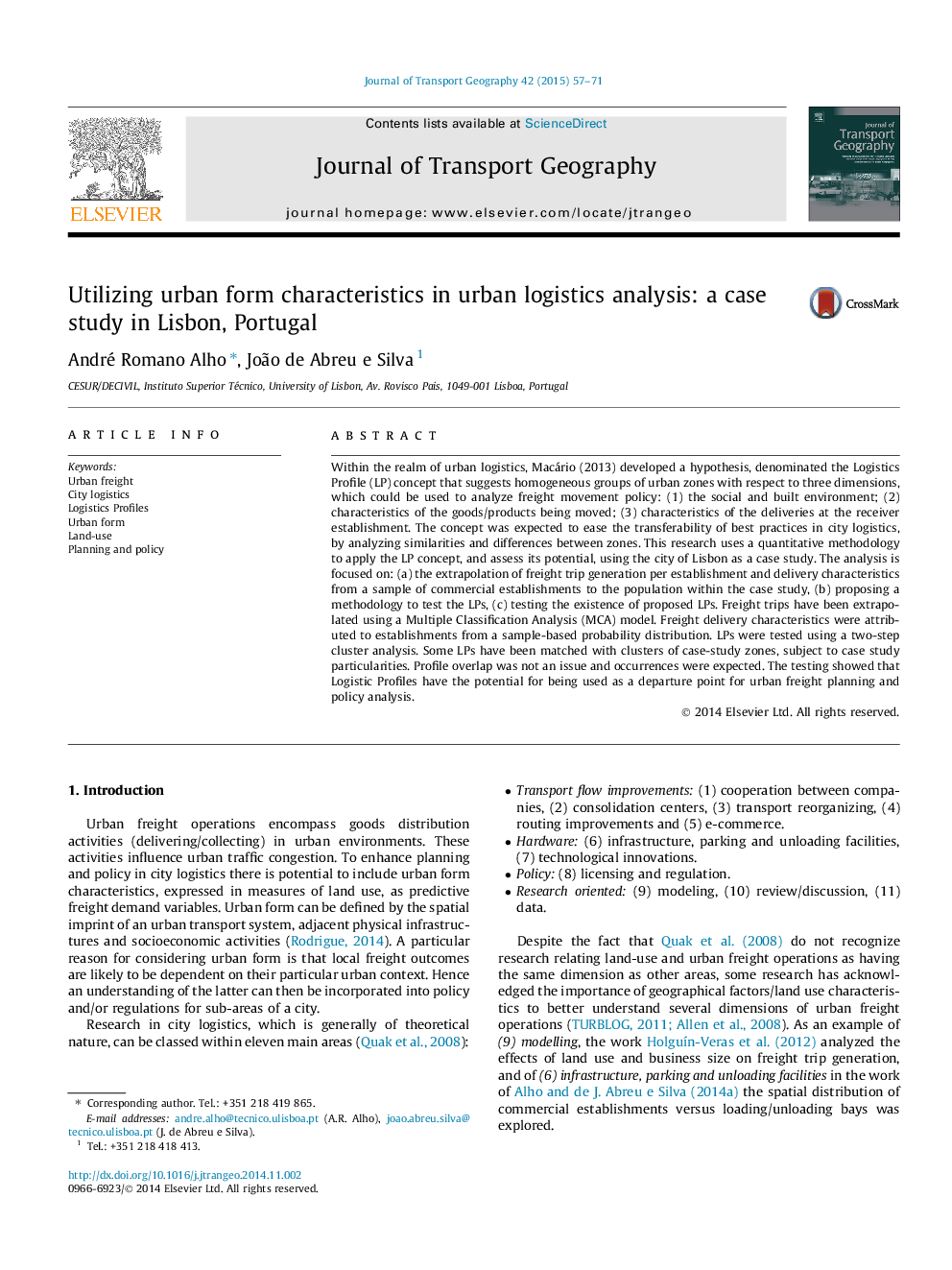| Article ID | Journal | Published Year | Pages | File Type |
|---|---|---|---|---|
| 1059176 | Journal of Transport Geography | 2015 | 15 Pages |
•Refines methodology to reveal homogeneous urban zones regarding logistics operations.•Innovative quantitative approach builds on established qualitative research.•Simplifies a case study in urban Lisbon, Portugal, to four zone types.•Transferable methodology allows testing and validation in other case studies.•Conclusions can inform planning and policy in city logistics.
Within the realm of urban logistics, Macário (2013) developed a hypothesis, denominated the Logistics Profile (LP) concept that suggests homogeneous groups of urban zones with respect to three dimensions, which could be used to analyze freight movement policy: (1) the social and built environment; (2) characteristics of the goods/products being moved; (3) characteristics of the deliveries at the receiver establishment. The concept was expected to ease the transferability of best practices in city logistics, by analyzing similarities and differences between zones. This research uses a quantitative methodology to apply the LP concept, and assess its potential, using the city of Lisbon as a case study. The analysis is focused on: (a) the extrapolation of freight trip generation per establishment and delivery characteristics from a sample of commercial establishments to the population within the case study, (b) proposing a methodology to test the LPs, (c) testing the existence of proposed LPs. Freight trips have been extrapolated using a Multiple Classification Analysis (MCA) model. Freight delivery characteristics were attributed to establishments from a sample-based probability distribution. LPs were tested using a two-step cluster analysis. Some LPs have been matched with clusters of case-study zones, subject to case study particularities. Profile overlap was not an issue and occurrences were expected. The testing showed that Logistic Profiles have the potential for being used as a departure point for urban freight planning and policy analysis.
